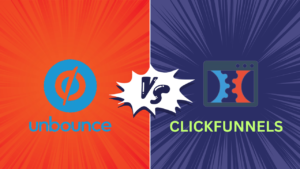In the bustling world of online business, the “Shopify vs ClickFunnels” debate is one that many entrepreneurs grapple with. Both platforms offer a unique set of tools and features designed to empower businesses in the digital age. But which one reigns supreme for your specific needs? Dive into our comprehensive comparison to find out.
Table of Contents
Ease of Use: Shopify vs ClickFunnels
When starting an online venture, the ease with which you can navigate and utilize a platform is paramount. Both Shopify and ClickFunnels have made significant strides in ensuring their platforms are user-friendly. Let’s explore each in detail.
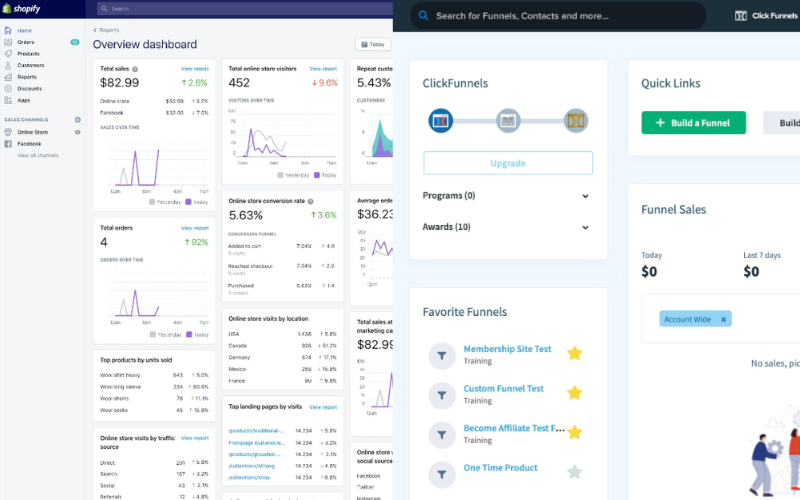
Shopify: Shopify has designed its interface to be intuitive and straightforward. From the moment you sign up, you’re guided through the process of setting up your online store. The dashboard is well-organized, with clear labels for product listings, store customization, and order management. Whether you’re a seasoned e-commerce veteran or a newcomer, Shopify’s ease of use is commendable.

ClickFunnels: ClickFunnels, on the other hand, prioritizes the creation of sales funnels. Its drag-and-drop builder simplifies what could be a complex process. While there might be a slight learning curve for those unfamiliar with sales funnels, ClickFunnels provides ample resources, including tutorials and walkthroughs, to assist users. The focus here is to make funnel creation as hassle-free as possible.
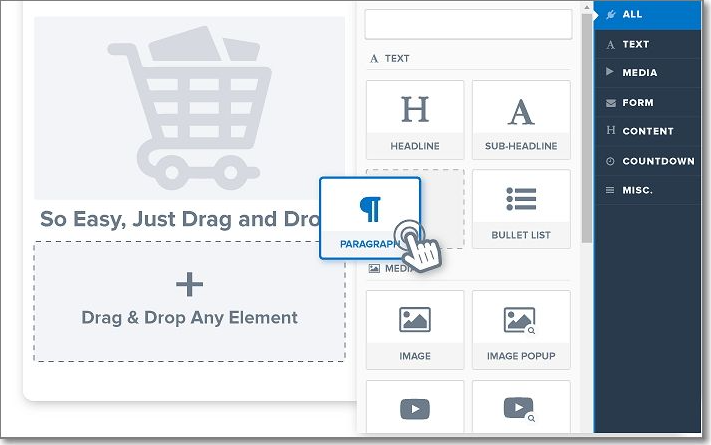
Comparison: In the “Shopify vs ClickFunnels” ease of use debate, both platforms excel in their domains. Shopify provides a seamless experience for setting up and managing an online store, while ClickFunnels ensures that building and optimizing sales funnels is a breeze. Your choice will hinge on what you prioritize more: comprehensive e-commerce management or specialized funnel creation.
Features & Functionality: Shopify vs ClickFunnels
Diving into the realm of features and functionalities, both Shopify and ClickFunnels offer a plethora of tools designed to meet the specific needs of their users. But how do they stack up against each other?
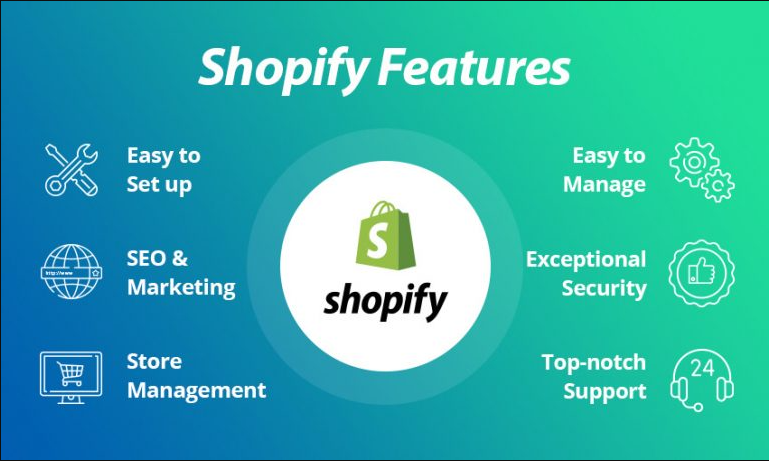
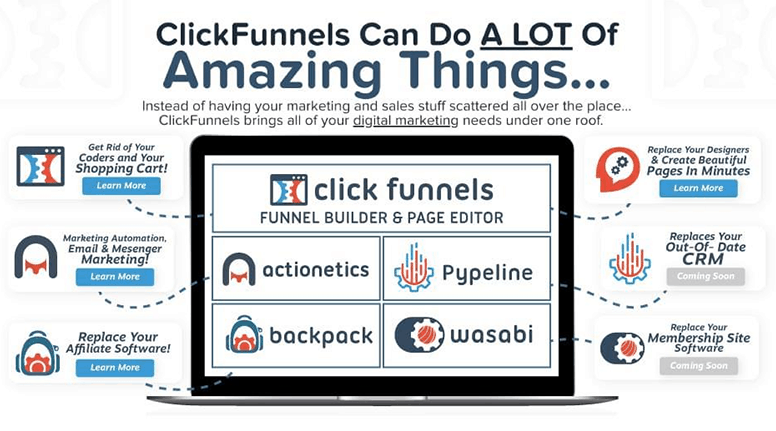
Shopify: At its core, Shopify is a comprehensive e-commerce platform. It boasts a vast range of themes to suit any business aesthetic. The platform’s App Store is its crown jewel, offering thousands of apps to extend your store’s functionality – from SEO optimization tools to inventory management solutions. Additionally, Shopify ensures secure payment processing, accommodating a wide range of payment gateways.
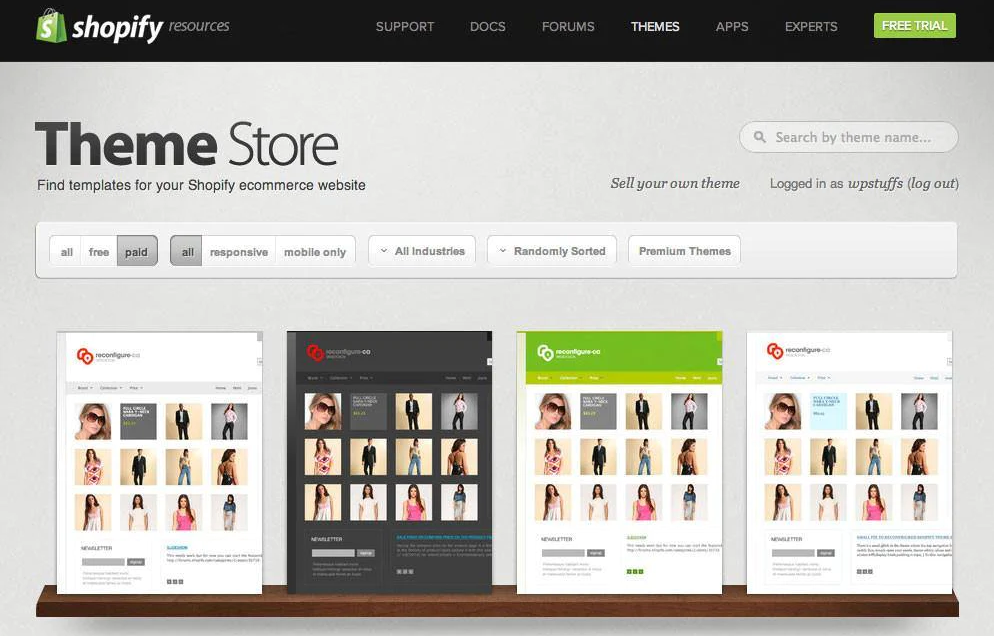
ClickFunnels: Designed as a funnel builder, ClickFunnels is all about converting leads. Its suite of tools includes a robust landing page creator, A/B testing capabilities, and integrated email marketing solutions. One of its standout features is the ability to create upsells and downsells directly within the platform, optimizing the customer’s journey for maximum sales.
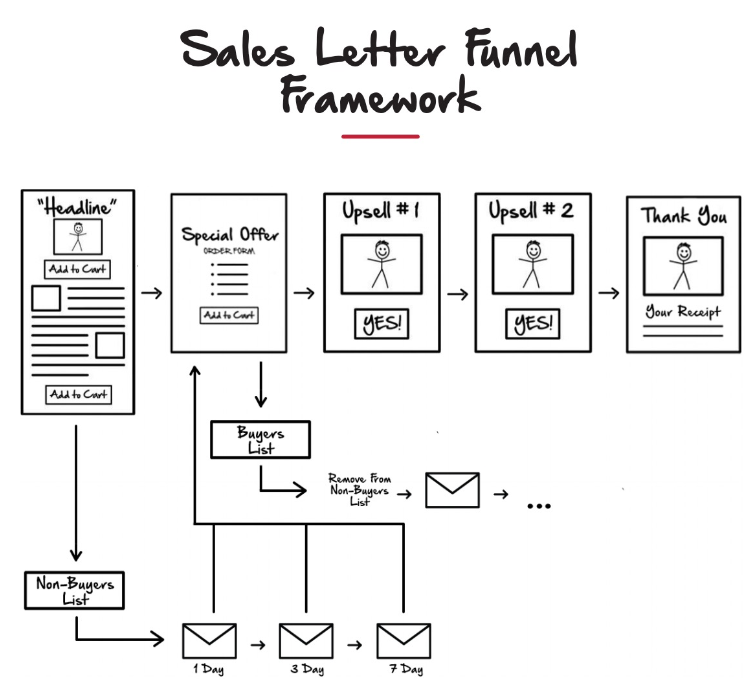
Comparison: When weighing “Shopify vs ClickFunnels” in terms of features, it’s essential to recognize that each platform excels in its niche. Shopify provides everything an online store might need, from product listings to customer reviews. In contrast, ClickFunnels zeroes in on lead conversion, providing tools to guide potential customers through a well-optimized sales funnel.
Pricing & Value for Money: Shopify vs ClickFunnels
In the ever-evolving digital landscape, pricing plays a pivotal role in decision-making. Both Shopify and ClickFunnels come with varied pricing models. But which platform offers the best bang for your buck?
Shopify: Shopify offers a tiered pricing model designed to cater to businesses of all sizes. Starting with the Basic Shopify plan, suitable for newcomers, and scaling up to more advanced plans like Shopify and Advanced Shopify, each tier offers a richer set of features. Moreover, Shopify provides a transparent pricing structure with no hidden fees, ensuring businesses can budget effectively.
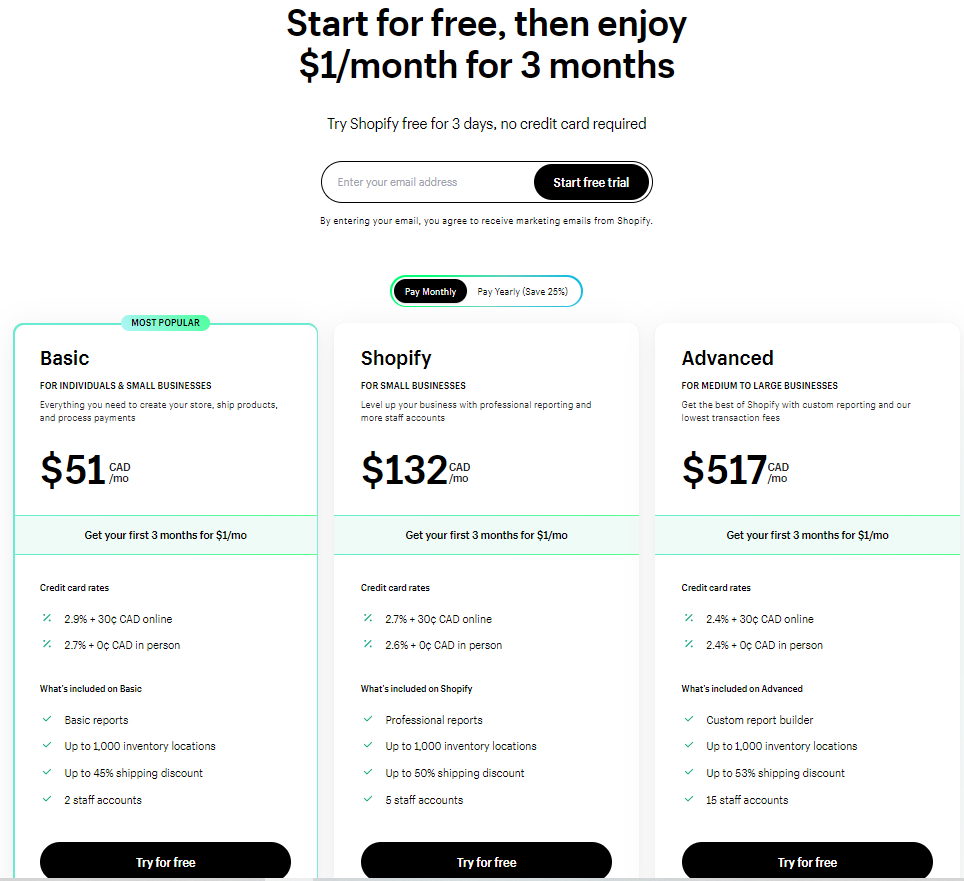
ClickFunnels: ClickFunnels’ pricing is structured around its core offering: funnel creation. The platform offers a couple of primary plans, with the main difference being the number of funnels, pages, and visitors each allows. For enterprises or those looking for advanced functionalities, ClickFunnels also provides a premium plan. One notable aspect is their 14-day free trial, allowing users to test the platform before committing.
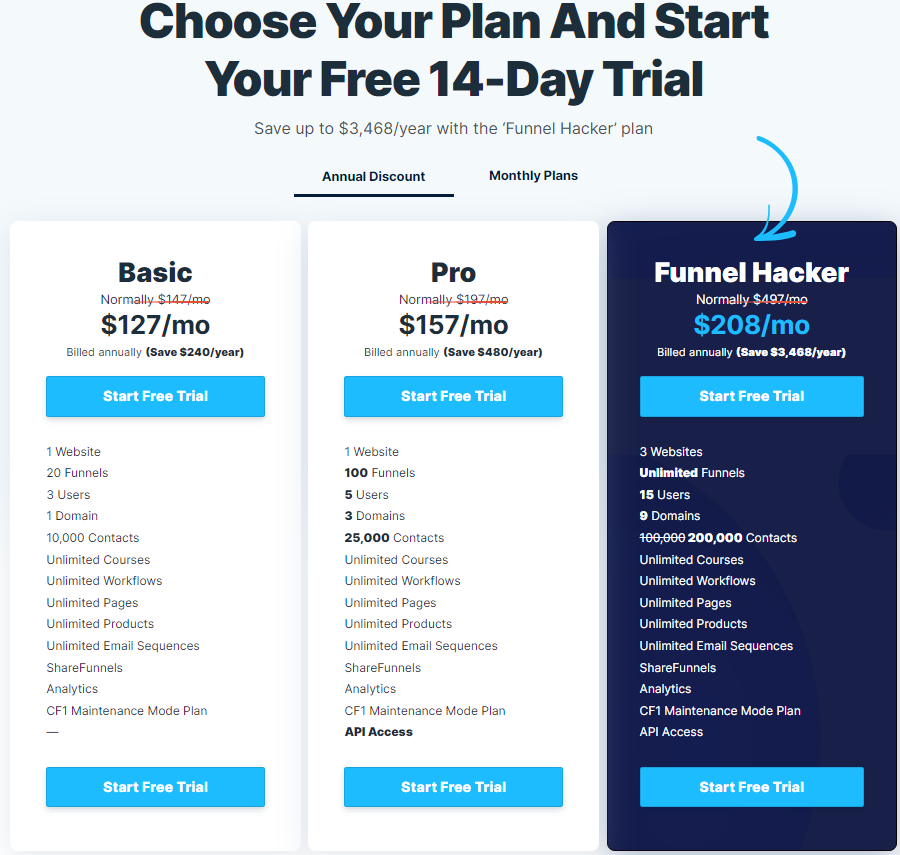
Comparison: In the “Shopify vs ClickFunnels” pricing debate, the decision boils down to individual needs. Shopify’s pricing is tailored towards e-commerce businesses, with costs scaling as your store grows. On the other hand, ClickFunnels focuses on marketing and lead conversion, with its pricing reflecting its specialized tools. Both platforms offer value, but the ideal choice hinges on your primary business focus.
Integration Capabilities: Shopify vs ClickFunnels
In today’s interconnected digital ecosystem, a platform’s ability to integrate seamlessly with other tools and services is crucial. Both Shopify and ClickFunnels recognize this and offer a range of integration options. But how do they fare against each other?
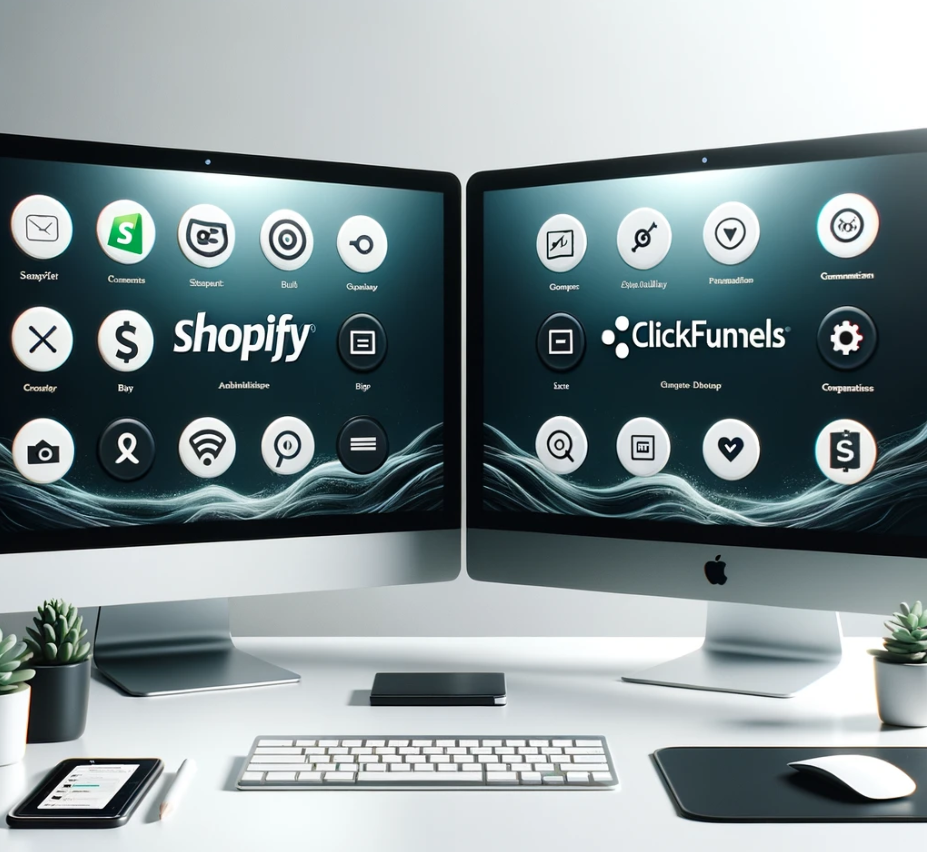
Shopify: Shopify’s strength lies in its extensive integrative capacity. Designed as a full-fledged e-commerce platform, it offers integrations with a myriad of third-party tools. From email marketing solutions like Mailchimp and Klaviyo to accounting tools like QuickBooks and Xero, Shopify ensures that store owners have all the tools they need at their fingertips. Additionally, its API is robust, allowing for custom integrations as businesses evolve.

ClickFunnels: While ClickFunnels is laser-focused on sales funnels, it doesn’t skimp on integration options. The platform is compatible with various email marketing platforms, webinar tools, payment gateways, and even e-commerce solutions. This ensures that marketers can craft a cohesive funnel experience without juggling multiple tools. The platform’s integrative approach is designed to optimize conversions at every stage.
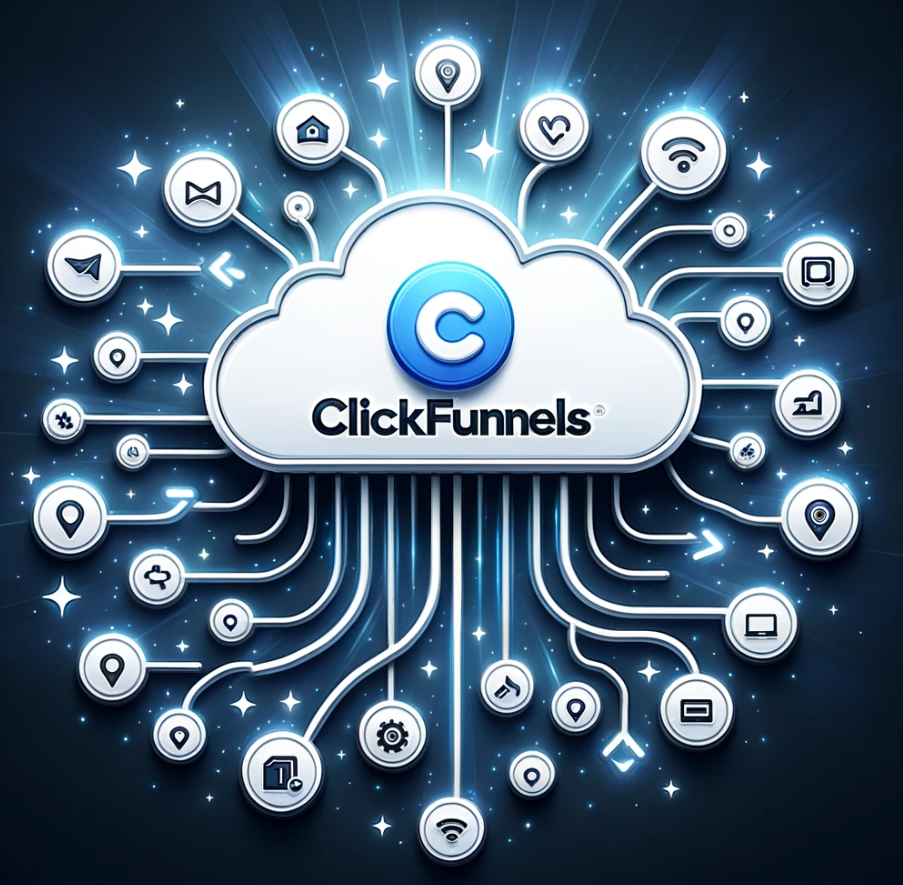
Comparison: Pitting “Shopify vs ClickFunnels” in the integration arena reveals a close contest. Shopify, with its e-commerce foundation, offers a broader range of integrations, catering to all facets of online retail. ClickFunnels, while narrower in its scope, provides integrations essential for its core purpose: lead conversion. The right choice will depend on the specific integrative needs of your business.
E-commerce Capabilities: Shopify vs ClickFunnels
The e-commerce landscape is vast and ever-evolving. Both Shopify and ClickFunnels have staked their claim in this realm, albeit with different focuses. Let’s dissect their e-commerce capabilities to determine which platform might be the best fit for your needs.

Shopify: Shopify’s name is synonymous with e-commerce. As a dedicated e-commerce platform, it offers a holistic suite of tools to manage online retail. From beautifully crafted storefront templates to inventory management, and from a secure checkout process to various shipping options, Shopify covers all the bases. Its flexibility is showcased by the diverse range of businesses it supports, from small artisans to large enterprises.
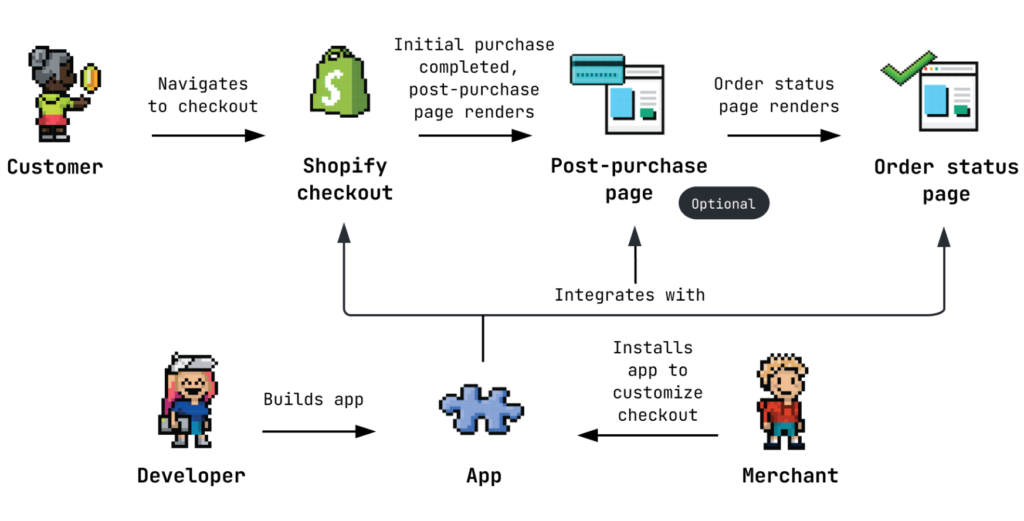
ClickFunnels: ClickFunnels, while primarily a marketing tool, doesn’t shy away from e-commerce. It offers a unique approach by integrating e-commerce into its sales funnels. This means while it may not have the breadth of e-commerce features like Shopify, it allows businesses to sell products directly through its funnels. Upsells, downsells, and order bumps are seamlessly integrated, optimizing the buyer’s journey for maximum revenue.
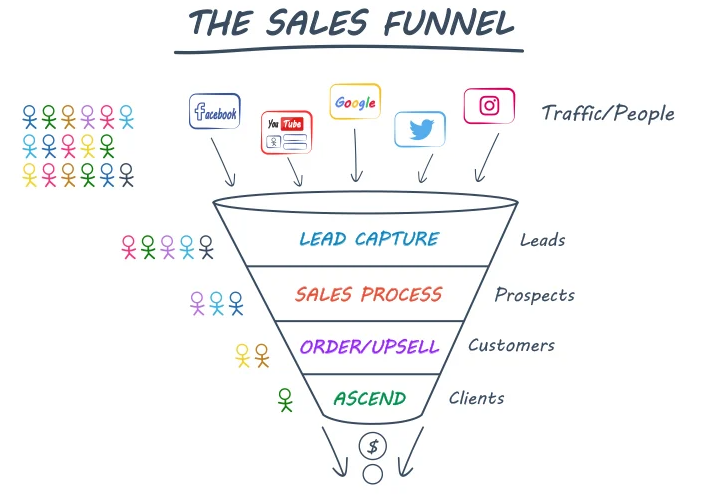
Comparison: When it comes to “Shopify vs ClickFunnels” in e-commerce capabilities, Shopify emerges as the more comprehensive solution, tailored for businesses focused on online retail. ClickFunnels, meanwhile, offers a specialized approach, merging marketing funnels with e-commerce to maximize conversions and sales.
Marketing & Sales Funnel Tools: Shopify vs ClickFunnels
In the digital age, having robust marketing and sales funnel tools is essential for businesses to thrive. Both Shopify and ClickFunnels offer solutions in this domain, but their approaches and offerings differ significantly. Let’s delve into their respective tools and strategies.
Shopify: While Shopify’s primary strength lies in e-commerce, it doesn’t neglect the importance of marketing. The platform offers built-in SEO tools, ensuring your store ranks well on search engines. Additionally, it integrates seamlessly with popular email marketing platforms, allowing for targeted campaigns. Paid advertising options, social media integrations, and retargeting capabilities further enhance its marketing suite.
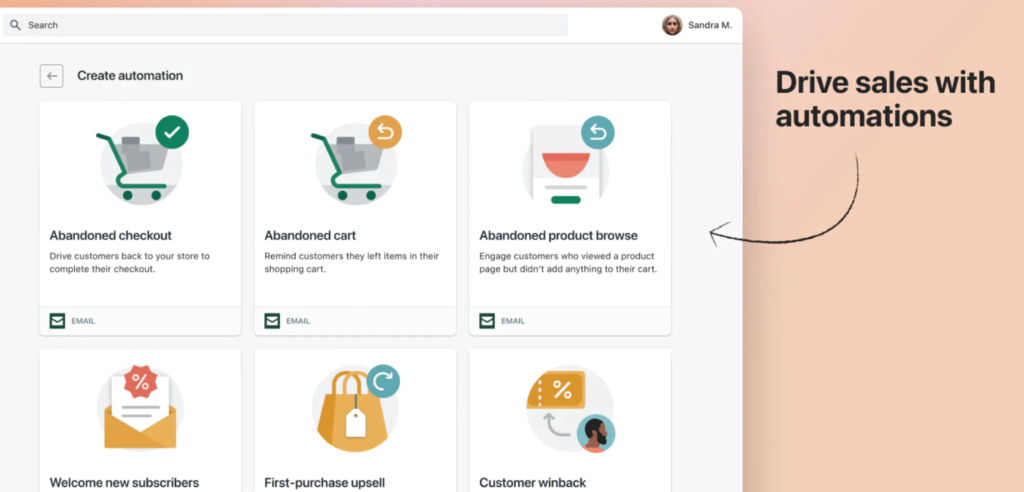
ClickFunnels: Marketing and sales funnels are at the very heart of ClickFunnels. The platform is designed to guide potential customers through a journey, from awareness to purchase. Its drag-and-drop funnel builder allows for customized pathways, with tools for A/B testing, lead capture, and conversion tracking. The emphasis here is on creating an optimized experience that maximizes conversions and sales.
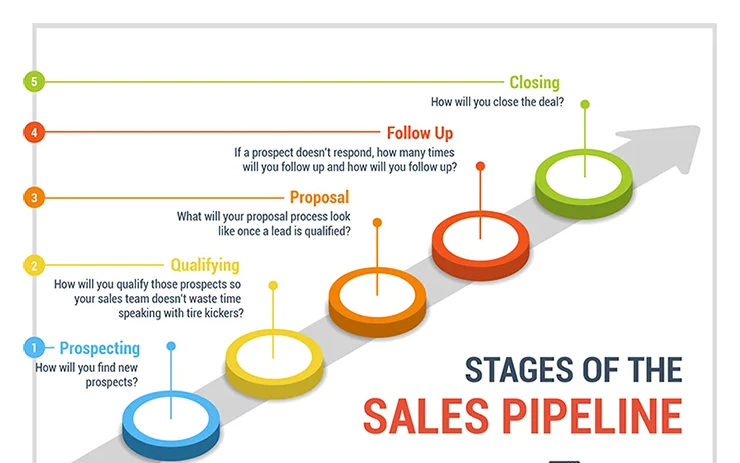
Comparison: In the “Shopify vs ClickFunnels” marketing tools debate, it’s clear that each platform serves a specific purpose. Shopify offers a more generalized marketing suite suitable for a broad e-commerce strategy. In contrast, ClickFunnels hones in on sales funnels, providing specialized tools to enhance and optimize the buyer’s journey.
Customer Support & Resources: Shopify vs ClickFunnels
No platform is complete without robust customer support and a wealth of resources to guide its users. Both Shopify and ClickFunnels understand this and have invested in providing top-notch assistance. Let’s evaluate their offerings in this domain.
Shopify: Shopify prides itself on its comprehensive customer support. Available 24/7, users can reach out via live chat, email, or phone. Additionally, Shopify’s extensive online knowledge base is packed with tutorials, guides, and FAQs, ensuring that users can find answers at any time. The platform also offers community forums and workshops, fostering a sense of camaraderie among its users.
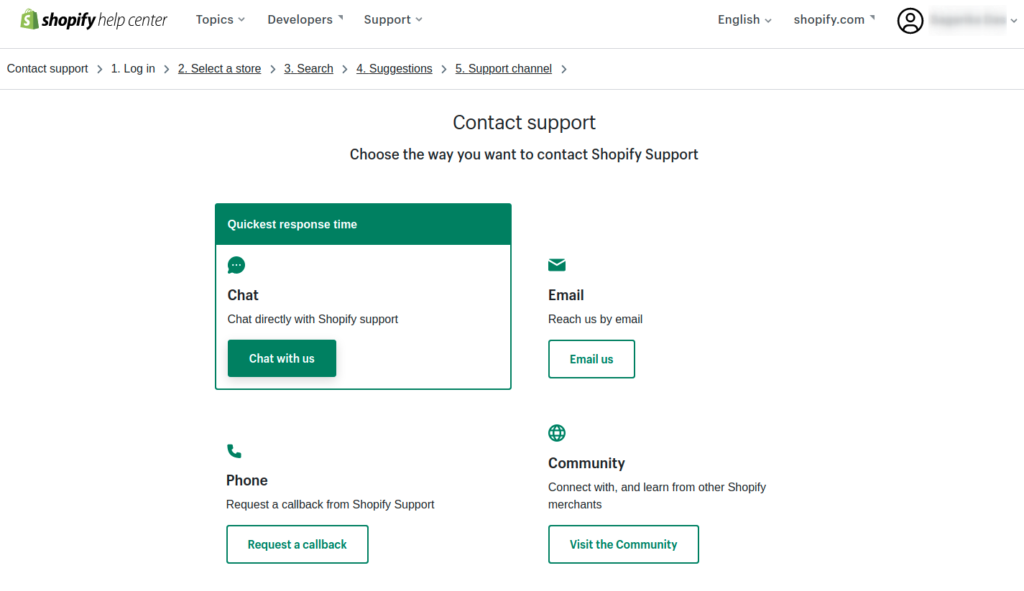
ClickFunnels: ClickFunnels, too, offers a solid support structure. While its primary support channel is via email, the platform compensates with an exhaustive knowledge base. Users can access detailed tutorials, webinars, and courses designed to maximize their ClickFunnels experience. The ClickFunnels community is also active, with forums and groups where users can exchange tips and tricks.
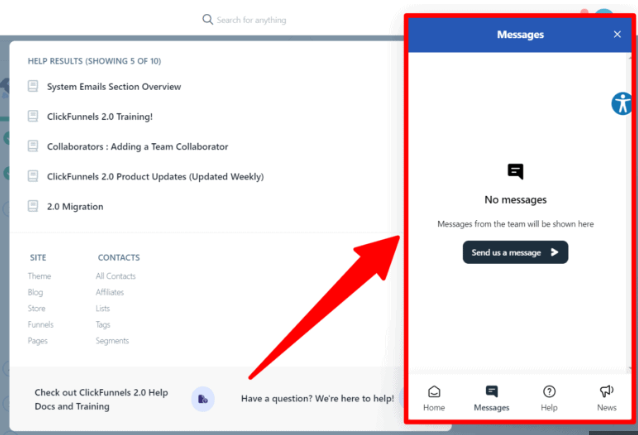
Comparison: In the “Shopify vs ClickFunnels” customer support showdown, both platforms demonstrate a commitment to their user base. Shopify’s round-the-clock support gives it an edge in terms of accessibility, while ClickFunnels shines with its educational resources and active community.
Scalability: Shopify vs ClickFunnels
As businesses grow, the platforms they rely on must be able to adapt and scale with them. Both Shopify and ClickFunnels claim to support businesses through their growth journeys. But how do they fare in practice?
Shopify: Shopify’s platform is built with scalability in mind. From small startups to expansive enterprises, Shopify has a solution. Its tiered pricing model, ranging from Basic Shopify to Shopify Plus, allows businesses to upgrade as their needs evolve. High-volume merchants, especially, benefit from Shopify’s advanced features, dedicated support, and custom solutions offered at the higher tiers.
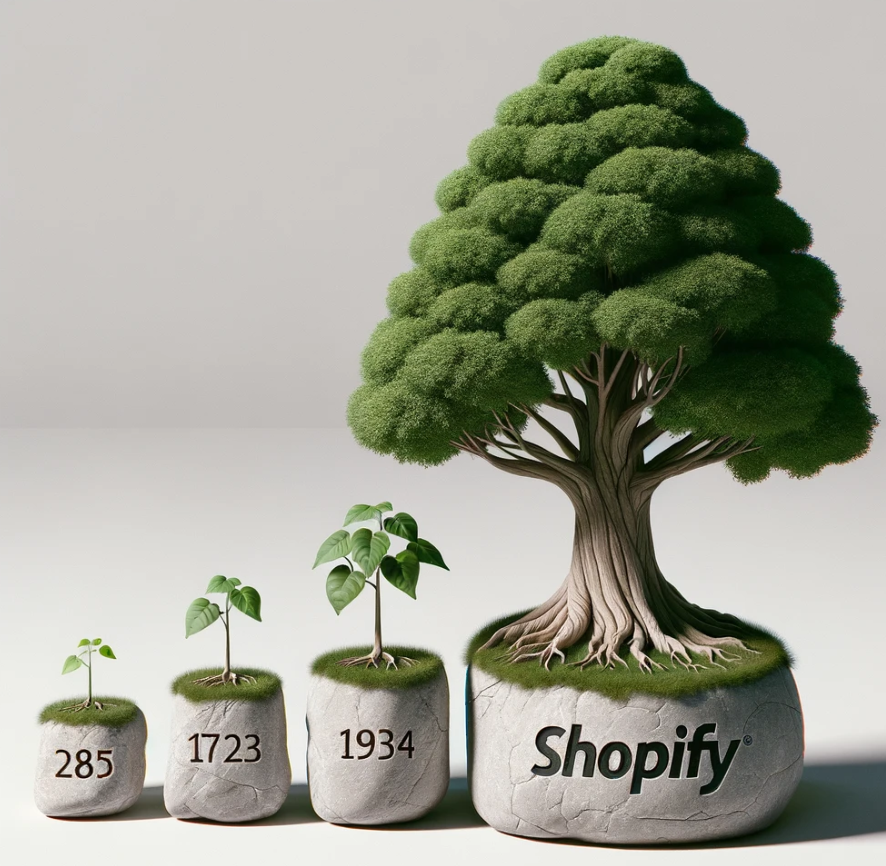
ClickFunnels: ClickFunnels positions itself as more than just a tool; it’s a solution for businesses at any stage. While its primary plans cater to a broad range of businesses, ClickFunnels Platinum and Two Comma ClubX offer advanced features and priority support for enterprises or rapidly scaling businesses. The platform emphasizes the ease with which users can expand their funnel strategies as their audience grows.

Comparison: In the “Shopify vs ClickFunnels” scalability battle, both platforms prove their worth. Shopify, with its e-commerce foundation, offers a clear pathway for businesses to scale their online stores. ClickFunnels, meanwhile, ensures that as your marketing and sales strategies grow more sophisticated, the platform can keep pace.
Conclusion: Shopify vs ClickFunnels
The digital landscape offers a plethora of tools and platforms, each with its unique strengths. In our journey comparing “Shopify vs ClickFunnels,” it’s evident that both platforms bring immense value to the table, albeit in different domains.
Shopify, with its roots deep in the e-commerce world, is a haven for businesses looking to establish and grow their online stores. Its comprehensive suite of tools, integrations, and scalability options ensure that businesses of all sizes can thrive on the platform.
On the other hand, ClickFunnels stands tall as a marketing juggernaut. Its emphasis on sales funnels, lead conversion, and optimized buyer journeys makes it a go-to for businesses aiming to maximize their marketing ROI.
In the end, the choice between Shopify and ClickFunnels boils down to individual needs and priorities. For those focused on e-commerce and online retail, Shopify is a natural choice. For businesses centered around marketing, lead generation, and sales optimization, ClickFunnels emerges as the frontrunner.
Regardless of the platform you choose, remember that the key to success lies in understanding your audience, offering value, and continuously adapting to the ever-changing digital ecosystem.




